AITA for telling my sister she isn’t the type of person I want my daughters to look up to?
Family expectations and role models can be deeply personal topics—especially when it comes to raising your children. In this story, a 25‑year‑old parent explains how she confronted her sister about being a role model for her daughters. Despite being close in family ties, the two sisters have led very different lives.
While the OP has built a stable environment for her kids, her sister’s history of dropping out of college, struggling with finances, and relying on others for support has led her to repeatedly ask for money and even propose moving in with the family. When the sister brought up living together once again, the OP bluntly stated that her sister isn’t the type of person she wants her daughters to admire. This led to a heated argument and family backlash, leaving the OP wondering if she overstepped.

‘AITA for telling my sister she isn’t the type of person I want my daughters to look up to?’
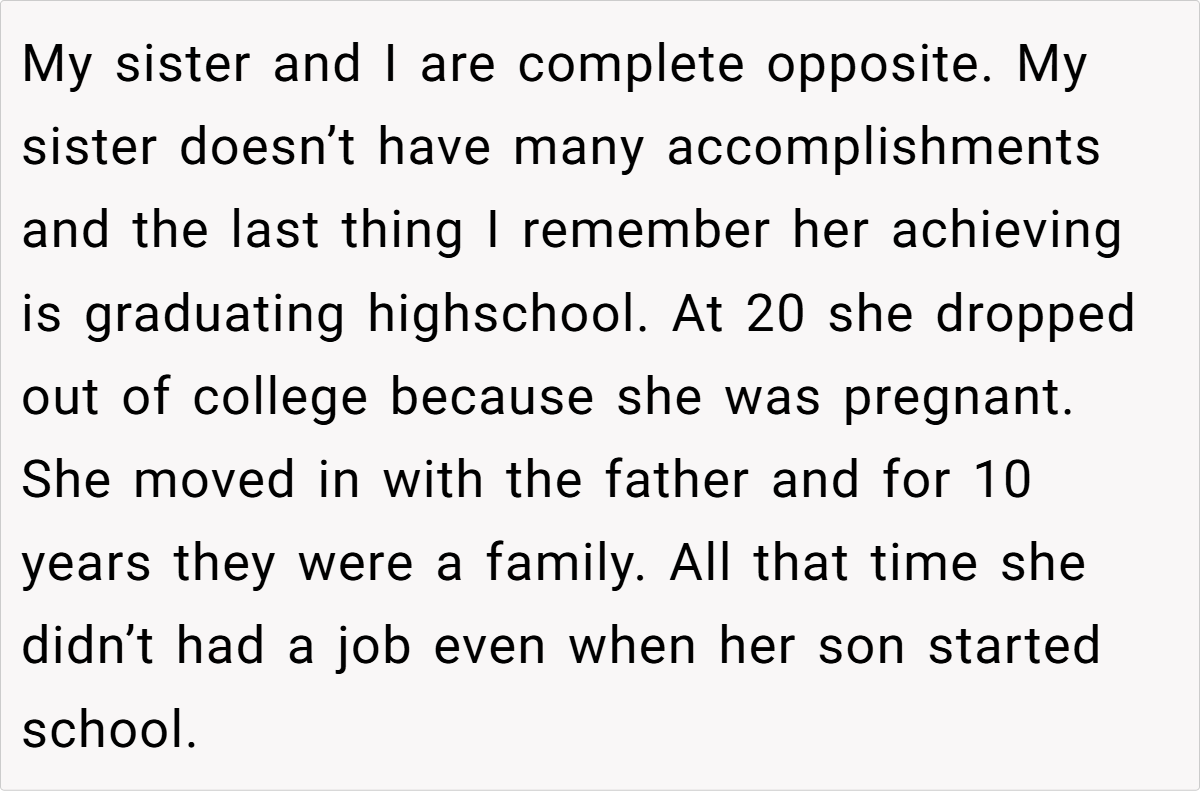
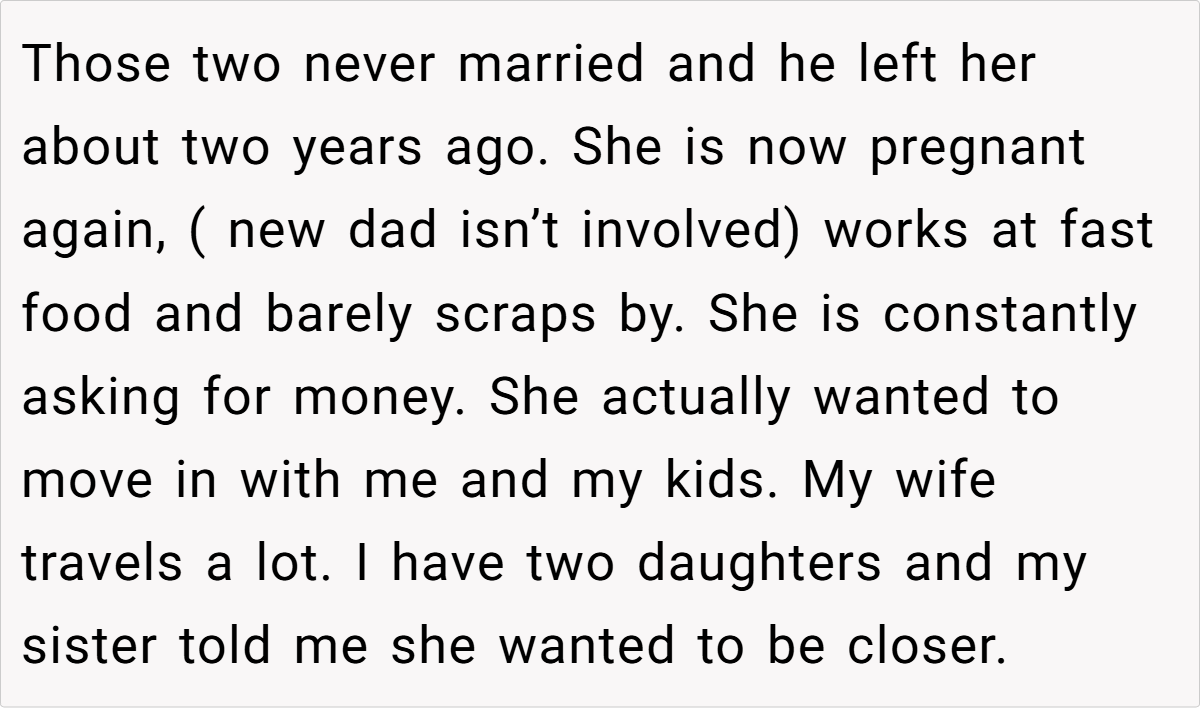
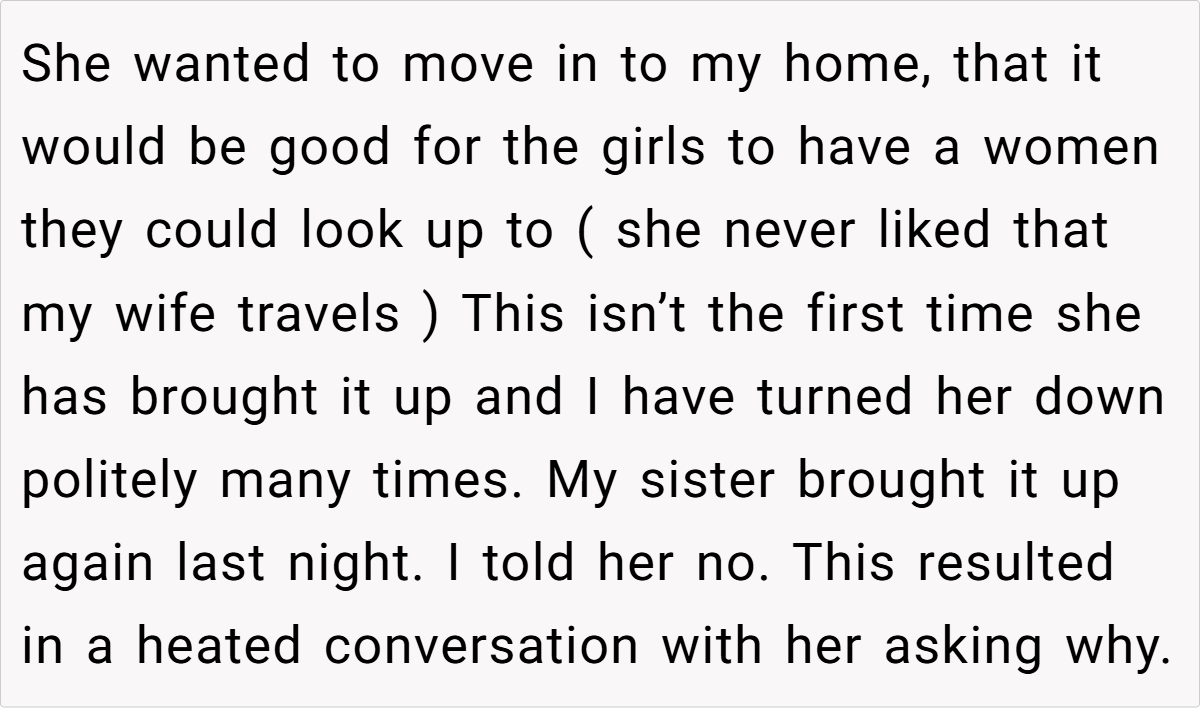
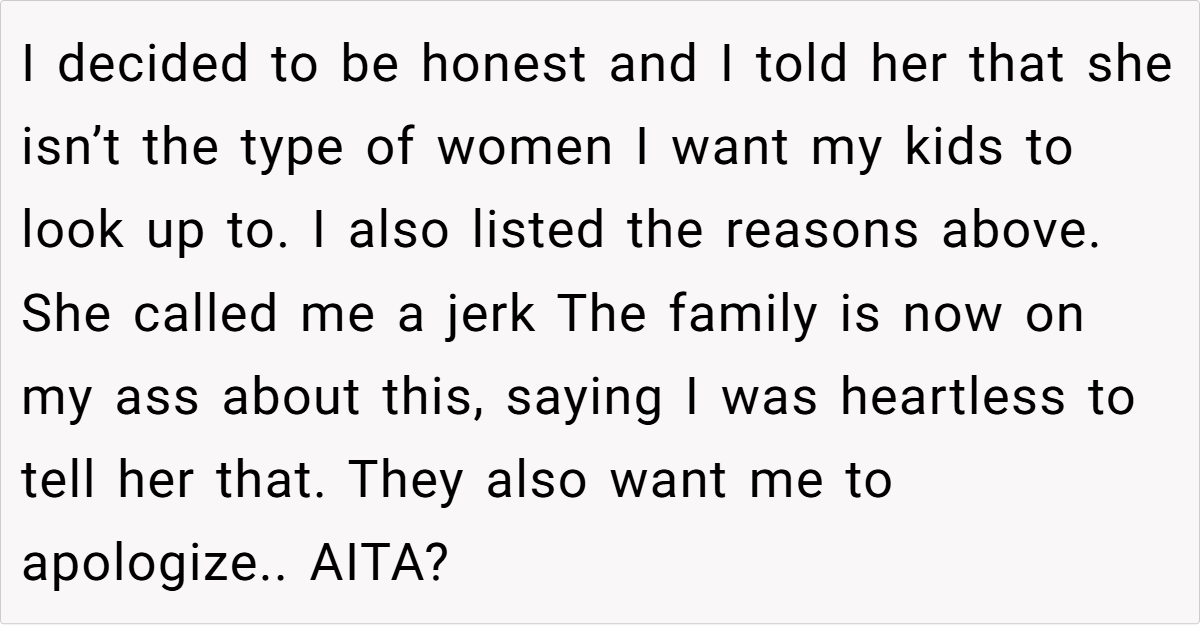
Family and relationship experts consistently emphasize that setting boundaries is crucial, especially when it comes to determining who influences your children. Dr. Laura Markham, a noted expert in family dynamics, often points out that role models play a significant part in shaping children’s values and self-image. While every family member brings their own strengths and flaws, it is reasonable for a parent to carefully choose who they want their children to admire.
In cases where one relative’s lifestyle and choices conflict with the values a parent wishes to instill, setting clear boundaries becomes necessary. It’s not about devaluing a person overall, but about protecting the impressionable minds of one’s children. By explaining her reasons, the OP was attempting to safeguard her daughters’ future and ensure that the role models they encounter reinforce the qualities she deems important—such as stability, responsibility, and independence.
Here’s how people reacted to the post:
Many in the community express mixed feelings. Some argue that the OP has every right to decide who serves as a role model for her children, especially when past behaviors are considered. They stress that parental guidance is about more than family ties; it’s about the values and habits passed on to the next generation.
Others feel that while boundaries are important, the approach might have been too harsh, suggesting that the sister’s struggles warrant empathy rather than outright rejection. This division reflects the complexity of balancing family loyalty with the duty of care toward one’s children.

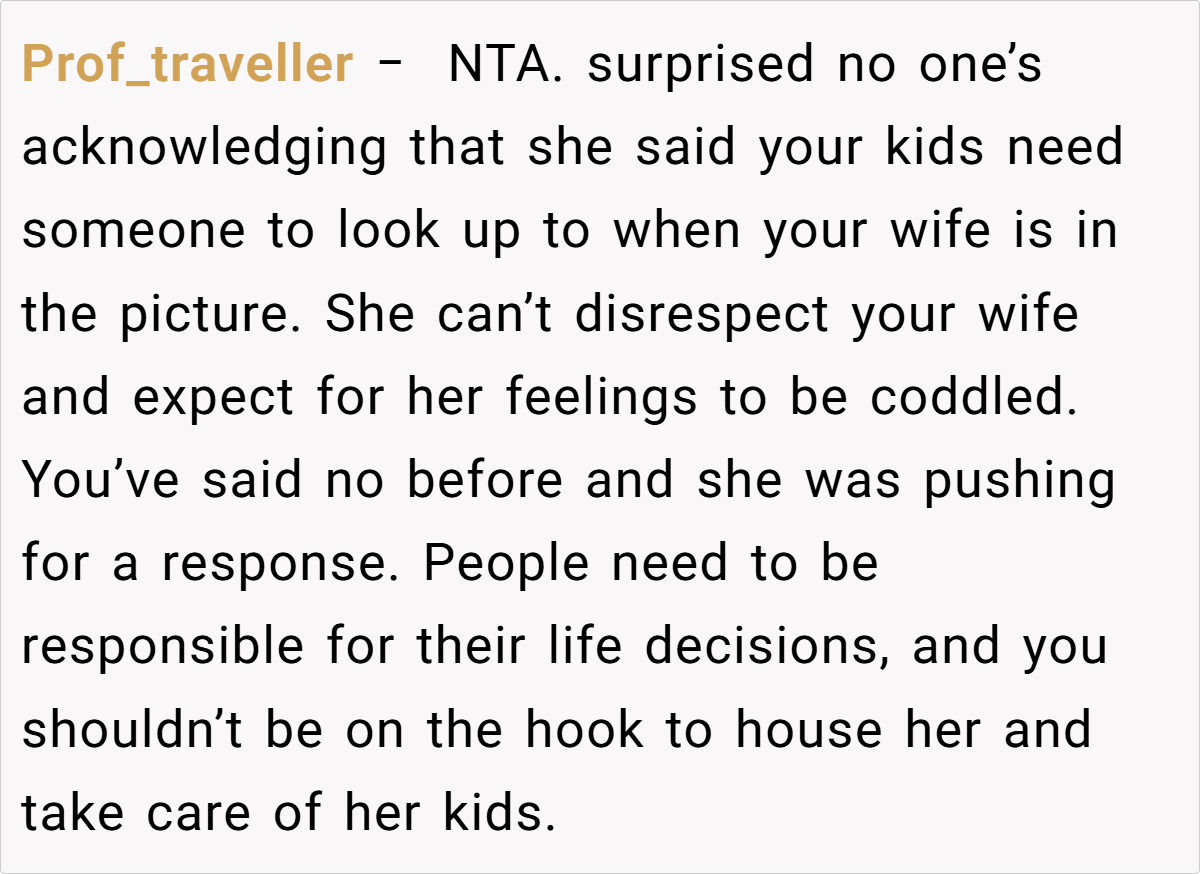
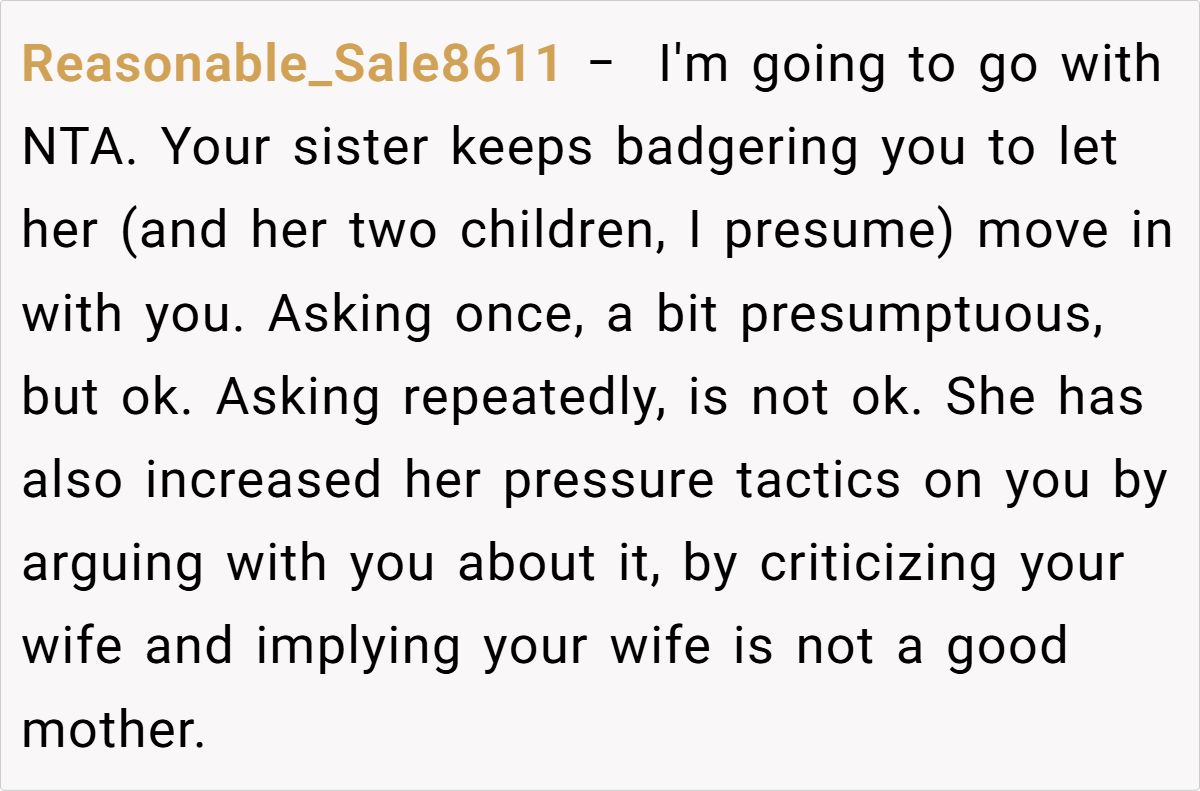

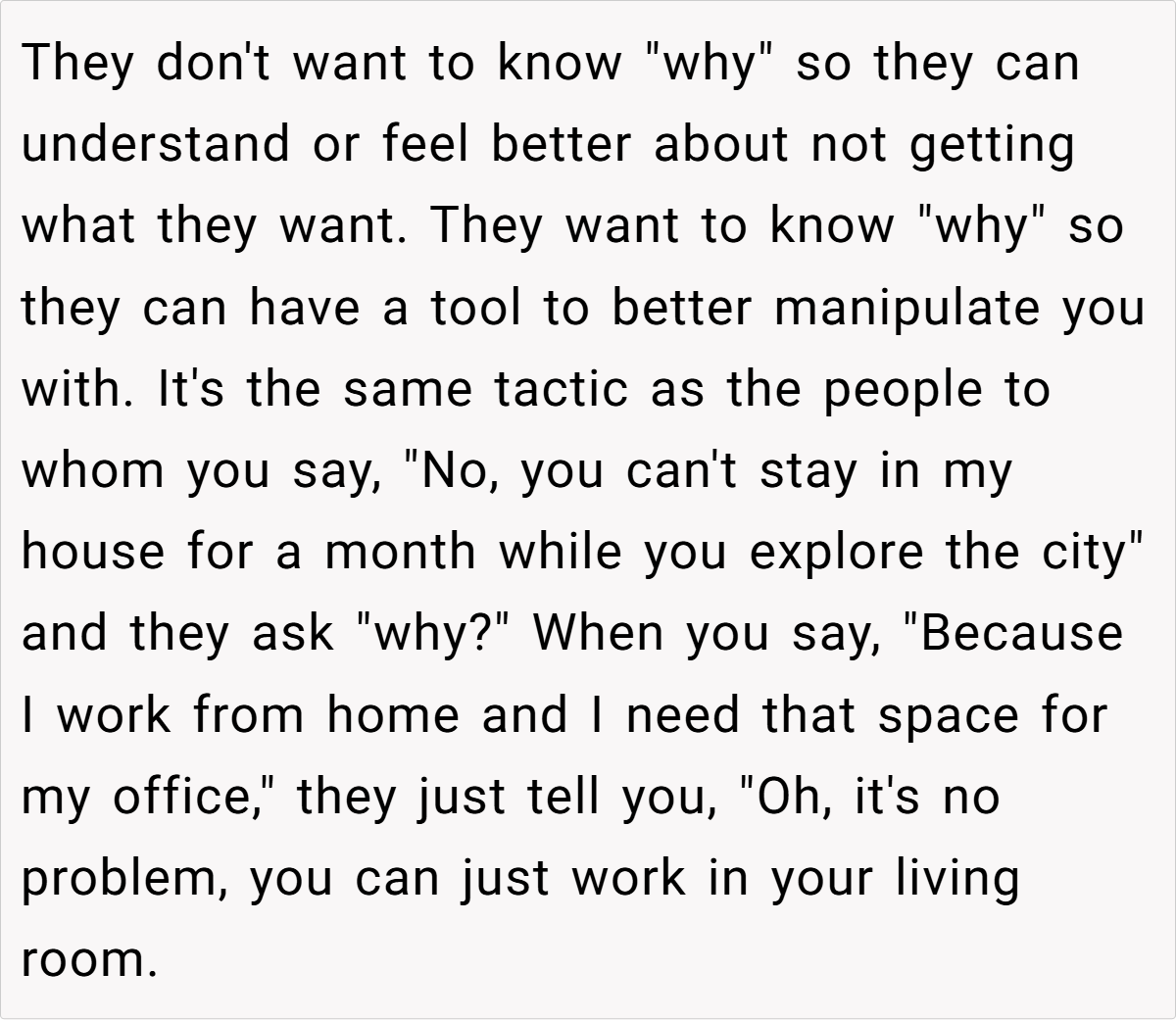
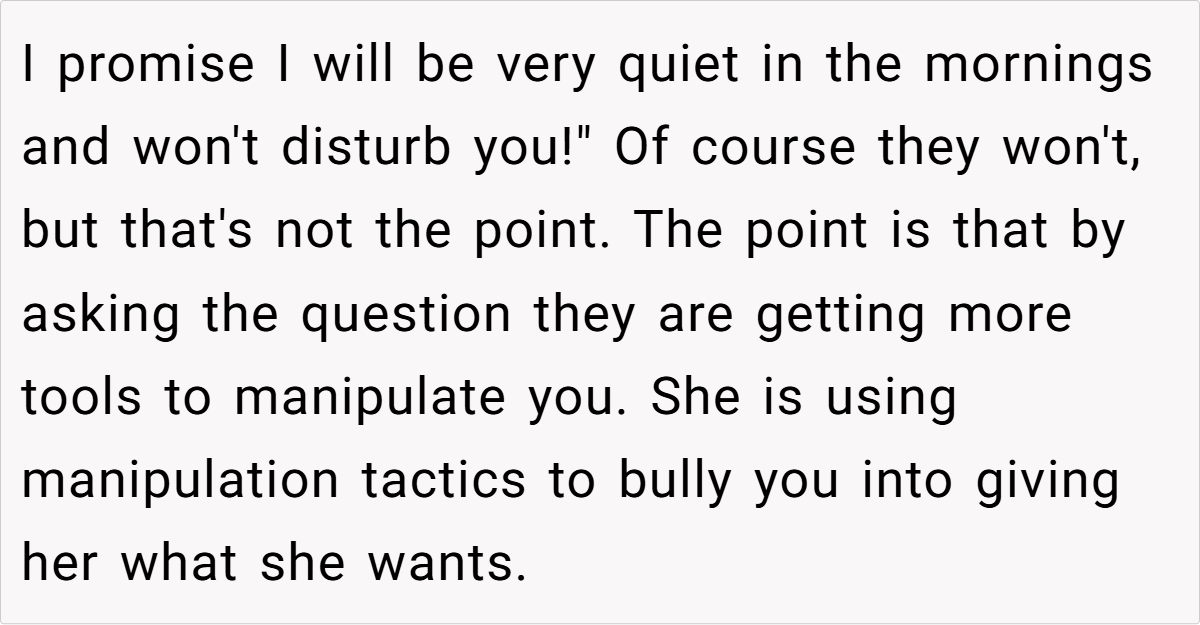
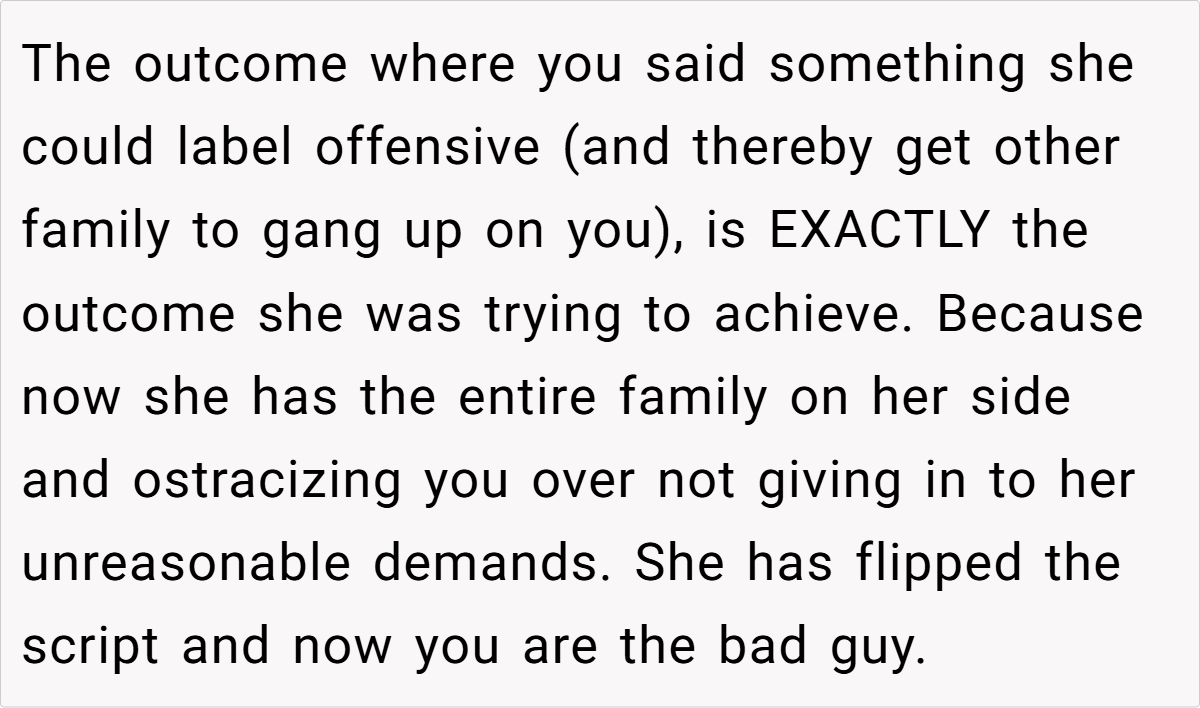
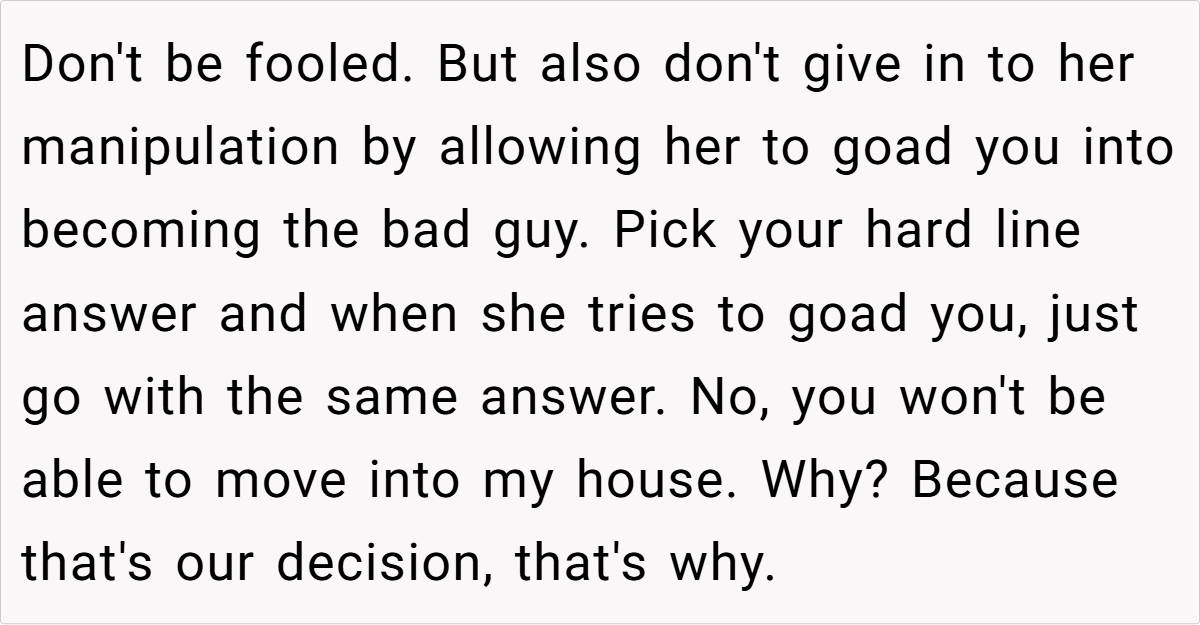
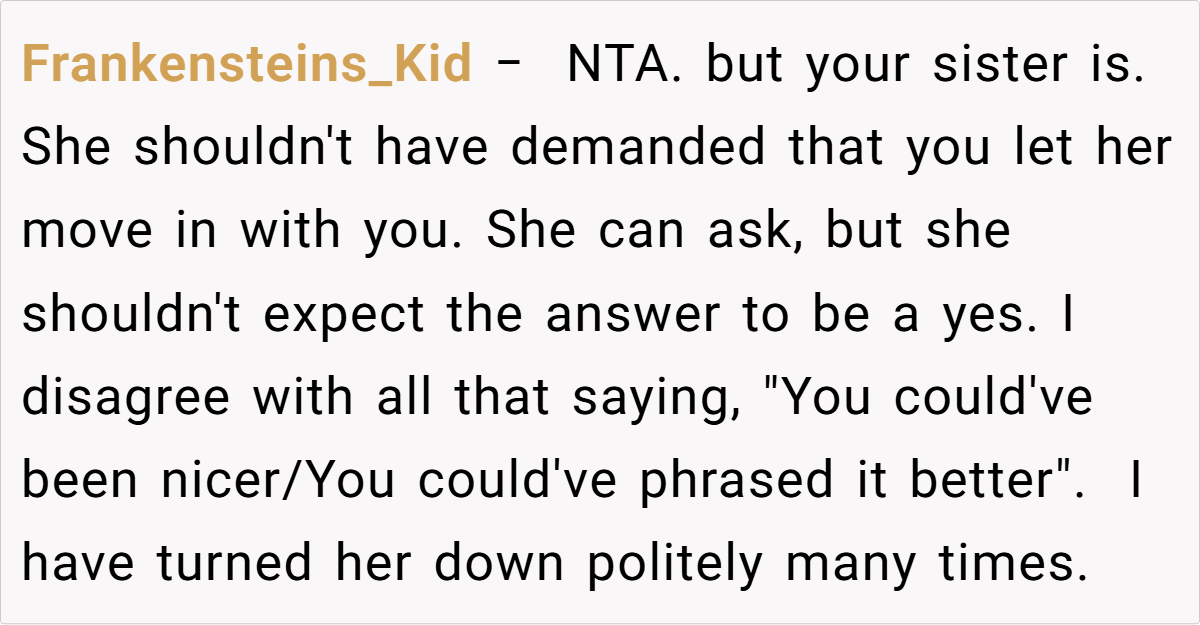
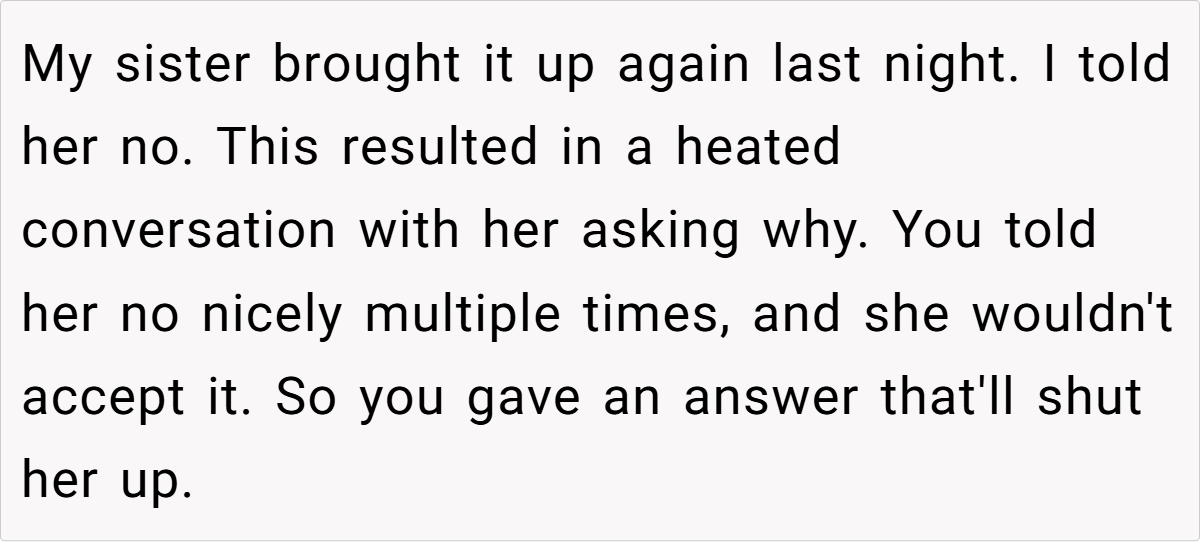
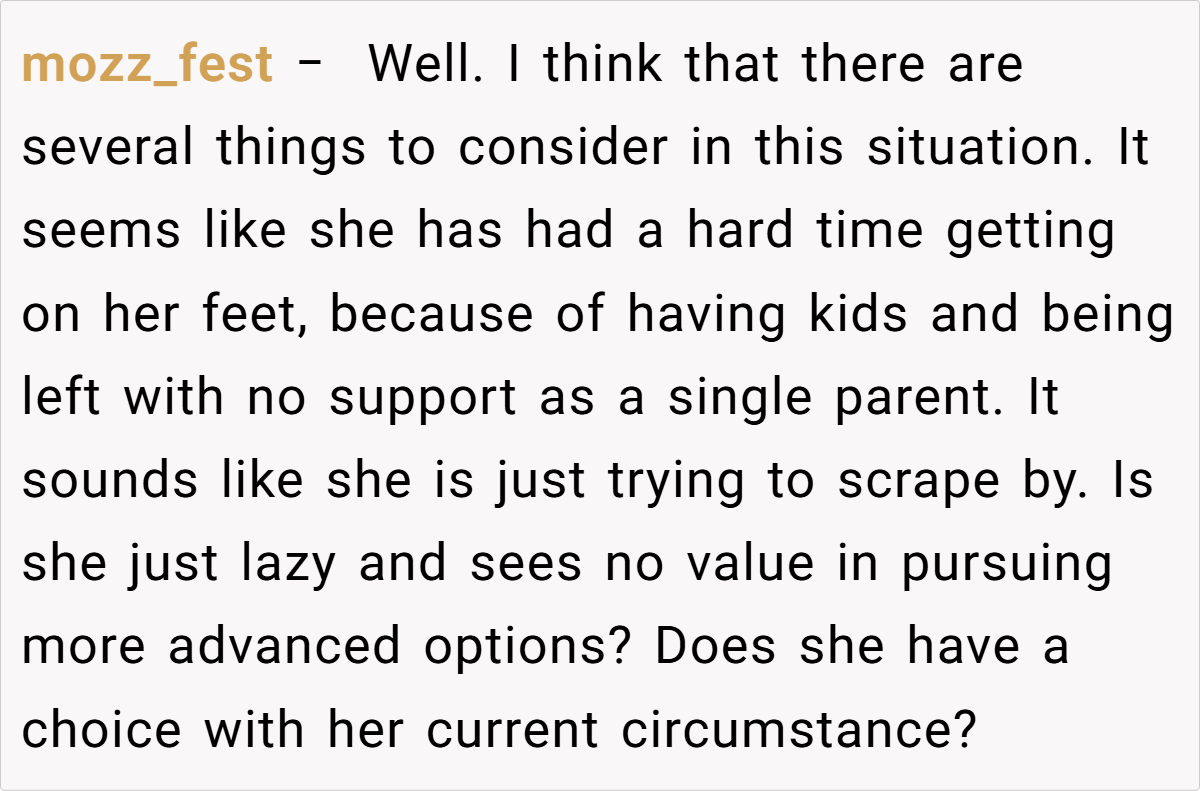
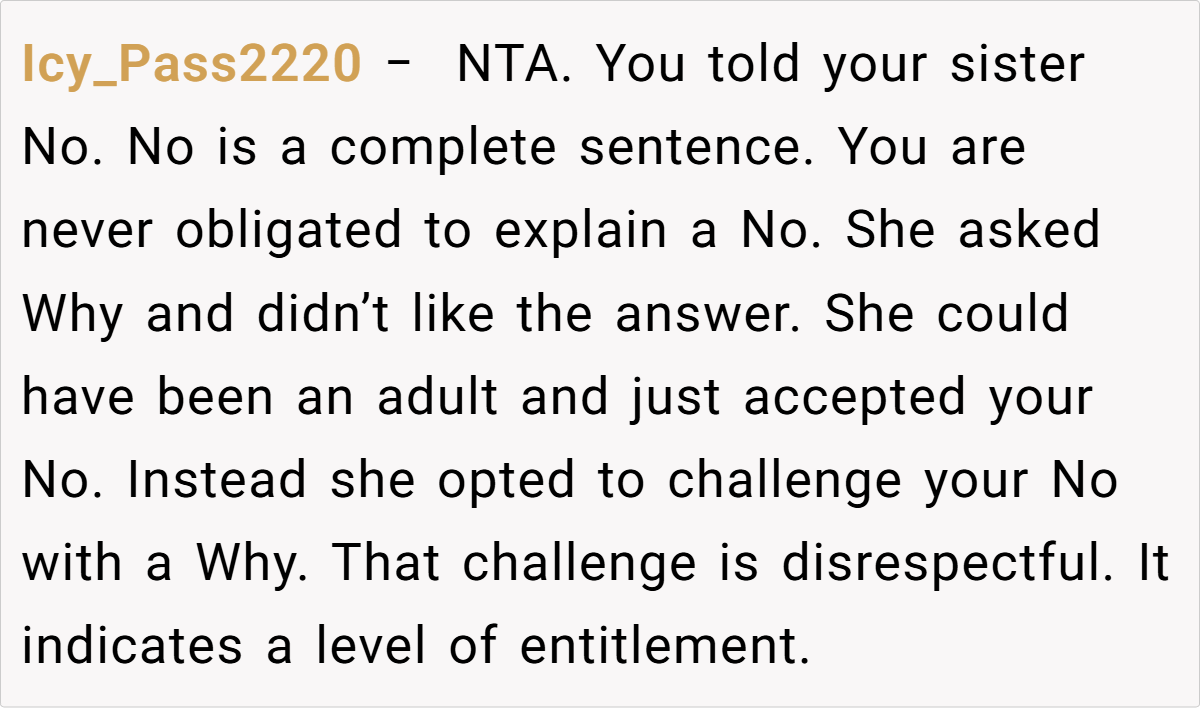
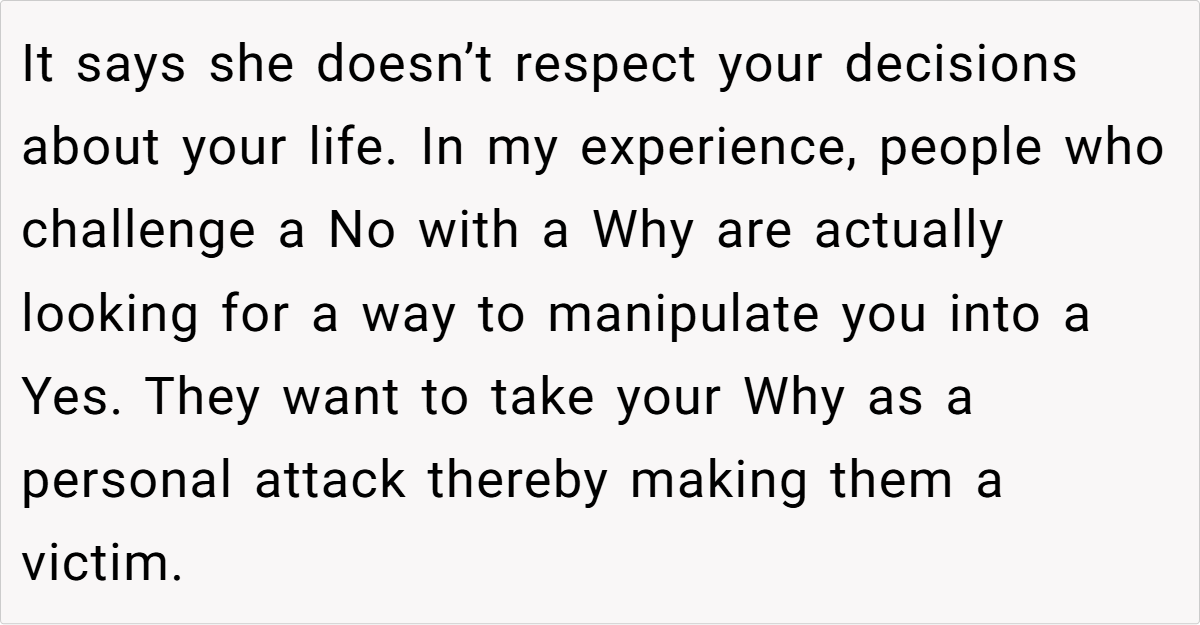
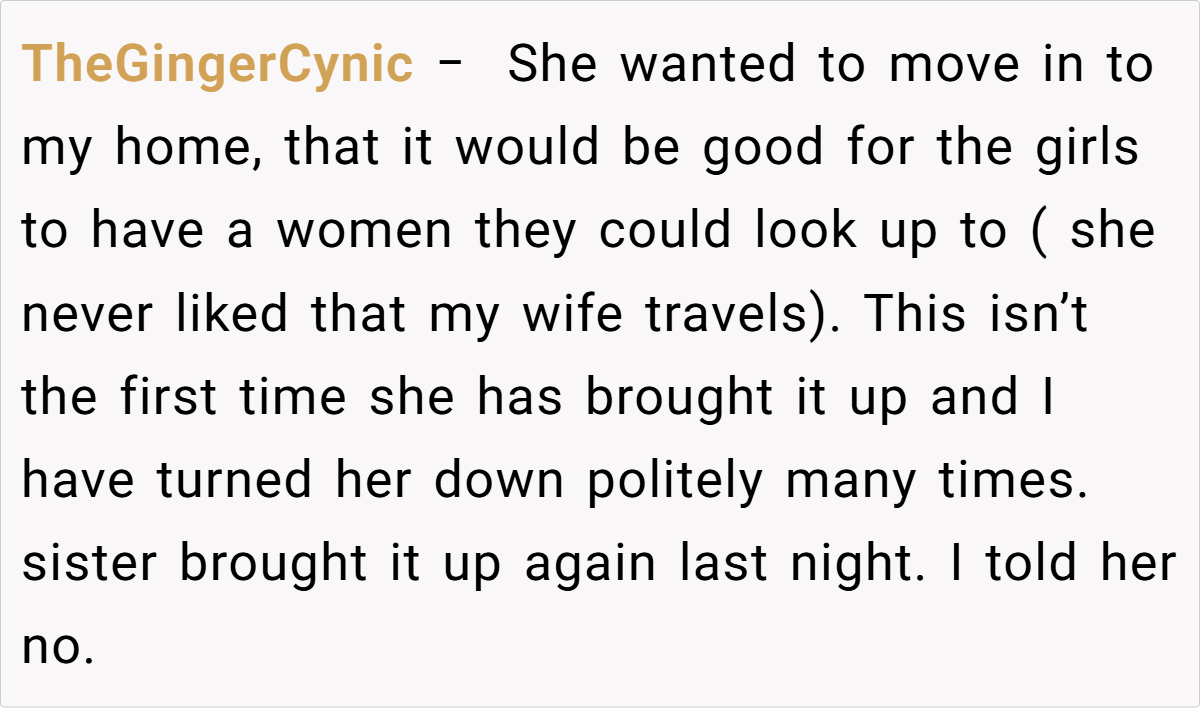
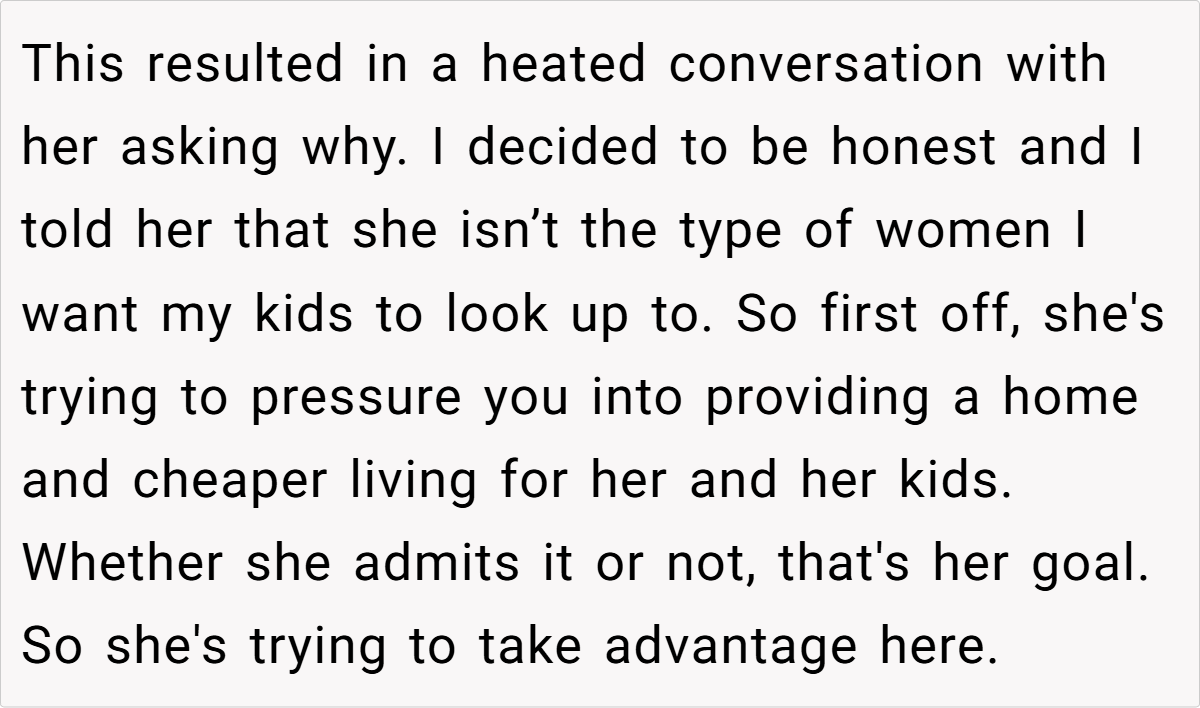
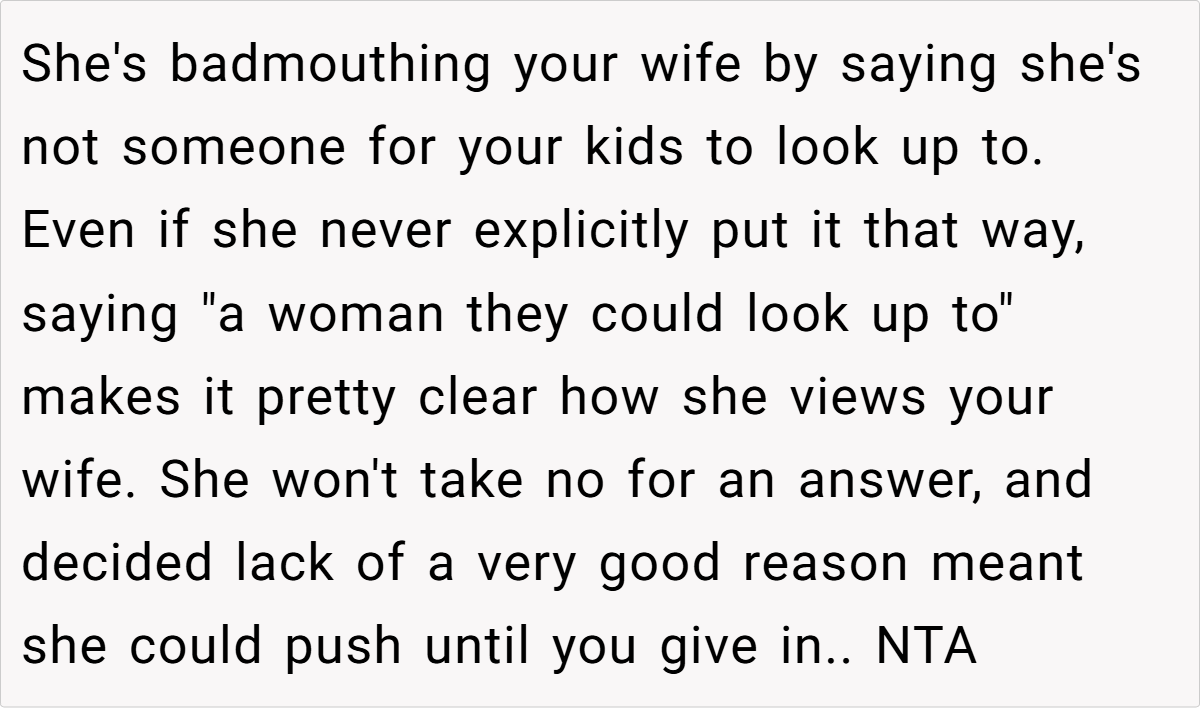
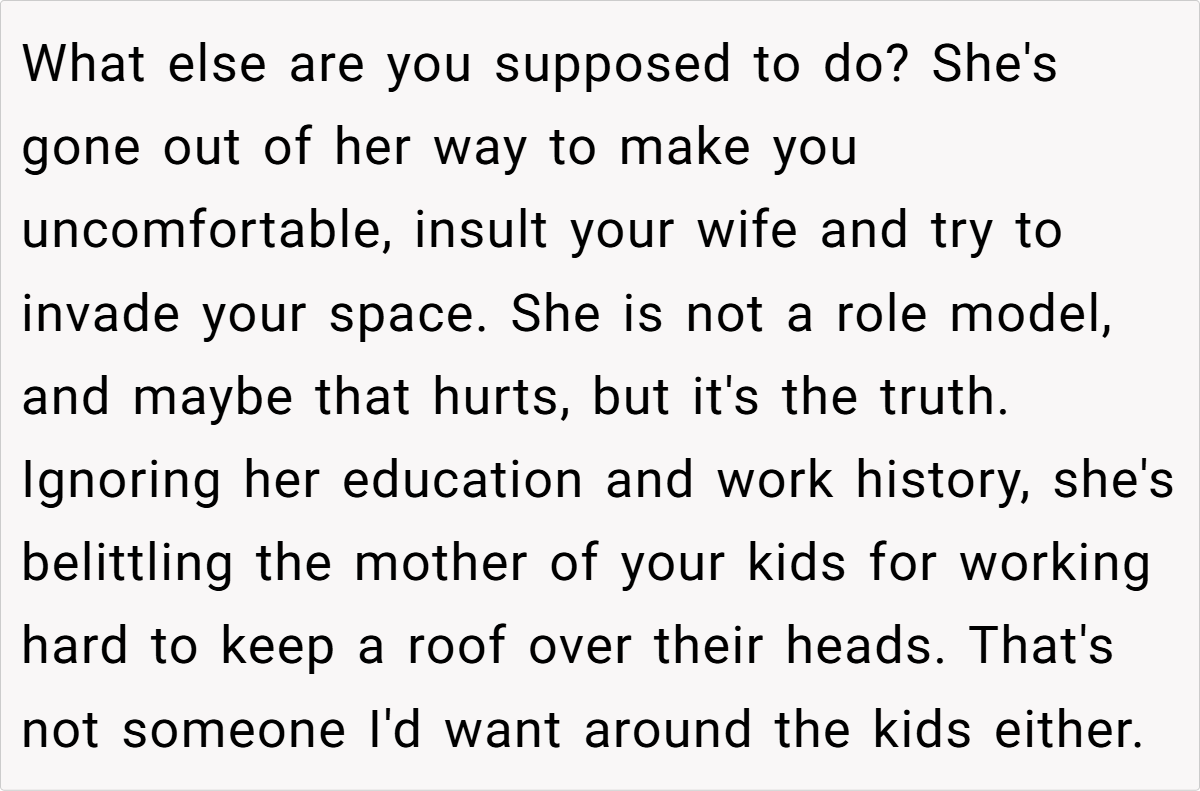
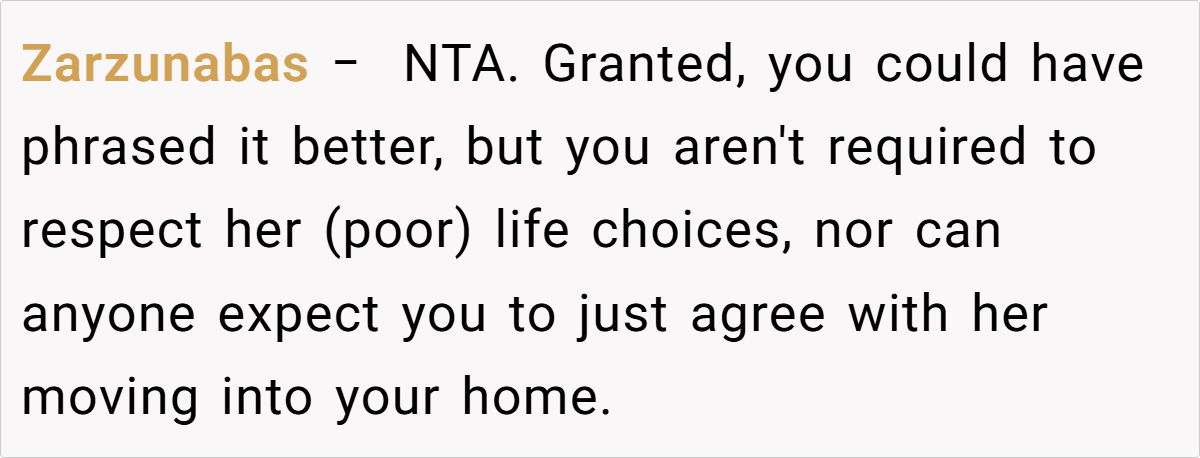
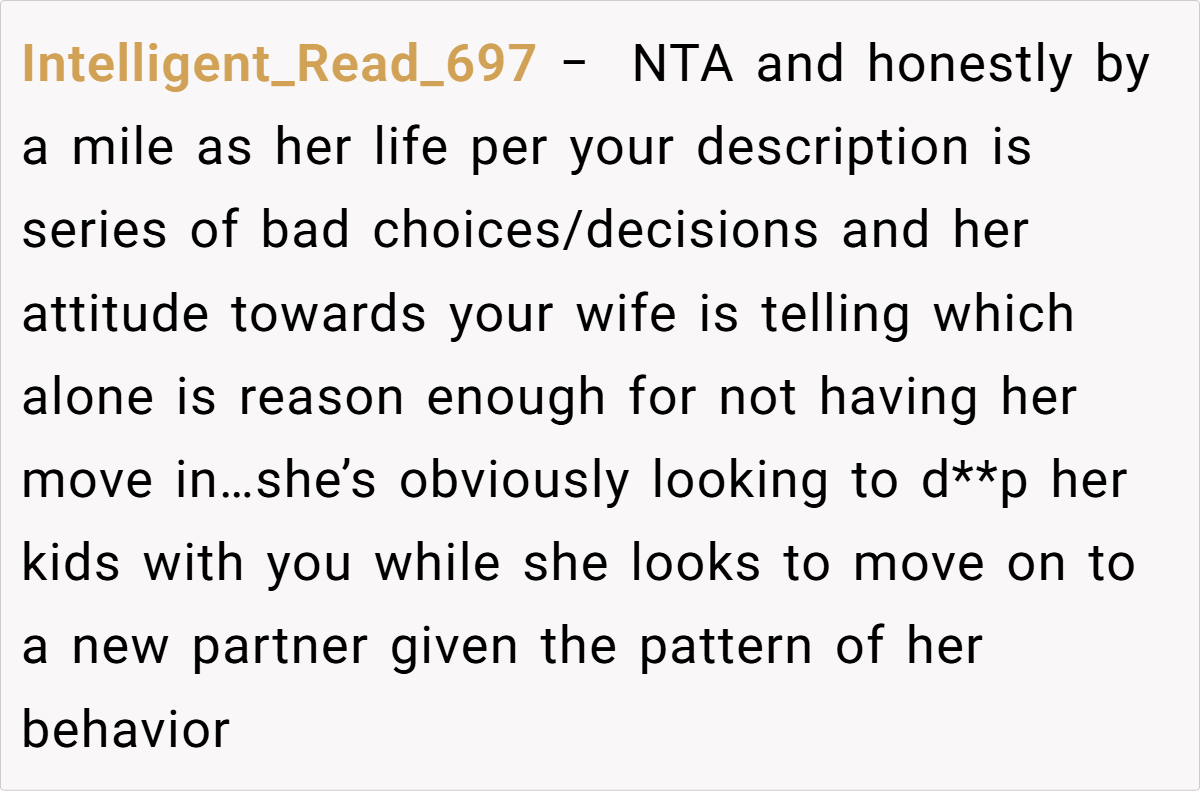
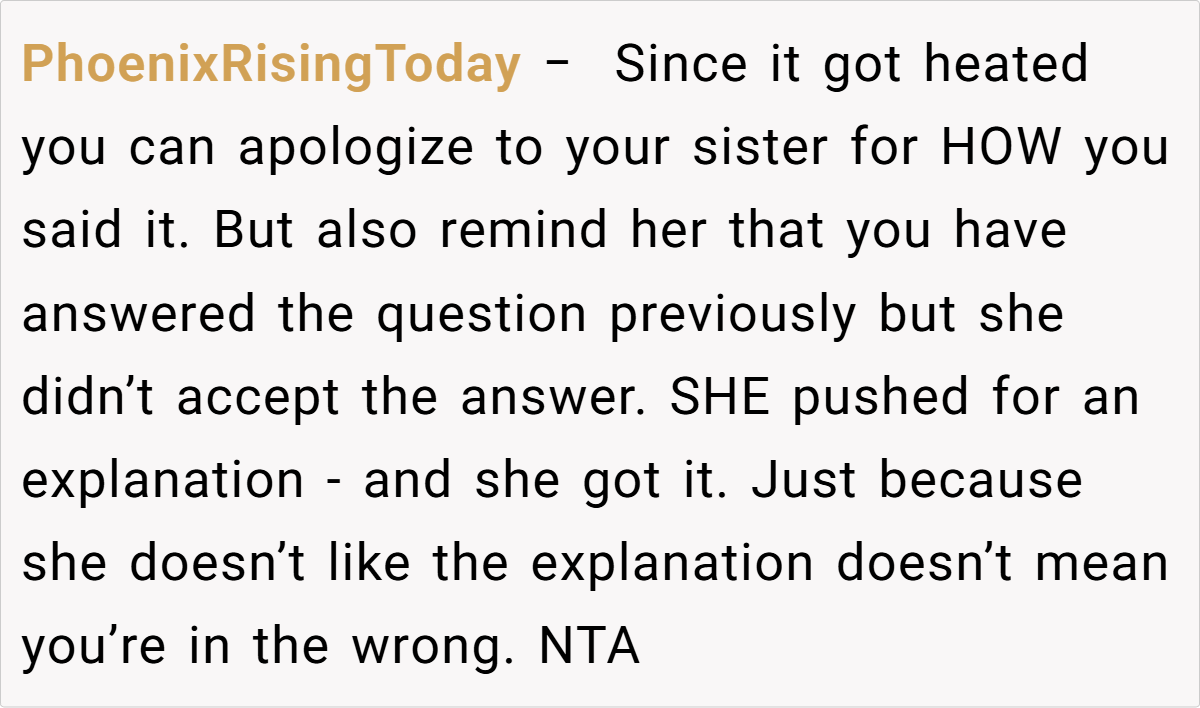
At its core, this story raises a fundamental question about the influence of family members on young minds. The OP’s decision to firmly state that her sister isn’t the role model she wants for her daughters isn’t necessarily about personal dislike—it’s about protecting the values she wants to nurture in her children.
However, the blunt delivery has ignited a firestorm within her family, leaving us to ask: When does a protective boundary become hurtful judgment? What are your thoughts on choosing role models for your kids, and how should tough conversations like this be handled in a close family? Share your perspectives and personal experiences in the comments below!

